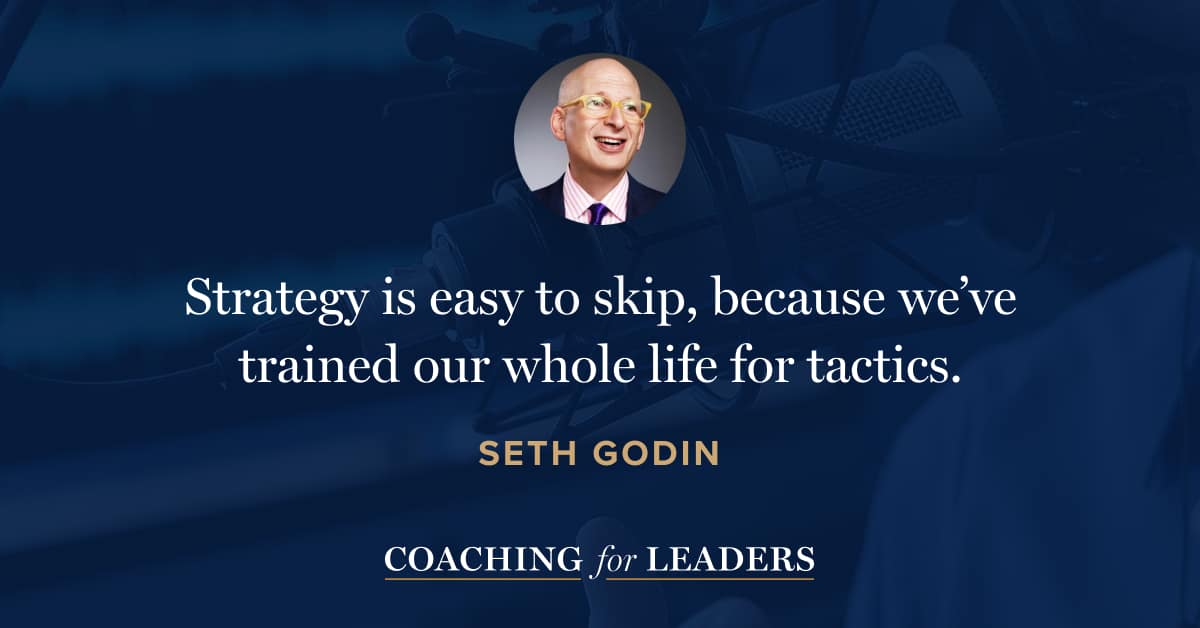Seth Godin: This is Strategy
Seth Godin has published 21 bestselling books that have changed the way people think about work. He writes one of the most popular blogs in the world, and two of his TED talks are among the most popular of all time. His blog is at seths.blog and his newest book is titled This is Strategy*.
Seth writes this: “It’s not clear to me why business plans are the way they are, but they’re often misused to obfuscate, bore, and show an ability to comply with expectations.” In this conversation, Seth and I explore the key components of a modern business plan.
Key Points
- Big problems require small solutions.
- We often skip strategy because most of us have trained our whole lives for tactics.
- A modern business is clear about systems and the status quo. Use the system if you intend to change the system.
- Assertions are the heart of a business plan. Leaders need to have empathy for someone else’s “better.”
- Articulating alternatives helps you stay resilient when some of your assertions are inevitably wrong.
- Find people to support you who have a track record of shipping.
- A useful business plan gets easier over time and persists (and maybe even thrives) when the world changes.
The six sections of a modern business plan:
- Truth
- Assertions
- Alternatives
- People
- Money
- Time
Resources Mentioned
- This is Strategy* by Seth Godin
Interview Notes
Download my interview notes in PDF format (free membership required).
Related Episodes
- How Leaders Build, with Guy Raz (episode 491)
- How to Grow Your Business, with Donald Miller (episode 629)
- Doing Better Than Zero Sum-Thinking, with Renée Mauborgne (episode 641)
Discover More
Activate your free membership for full access to the entire library of interviews since 2011, searchable by topic. To accelerate your learning, uncover more inside Coaching for Leaders Plus.





